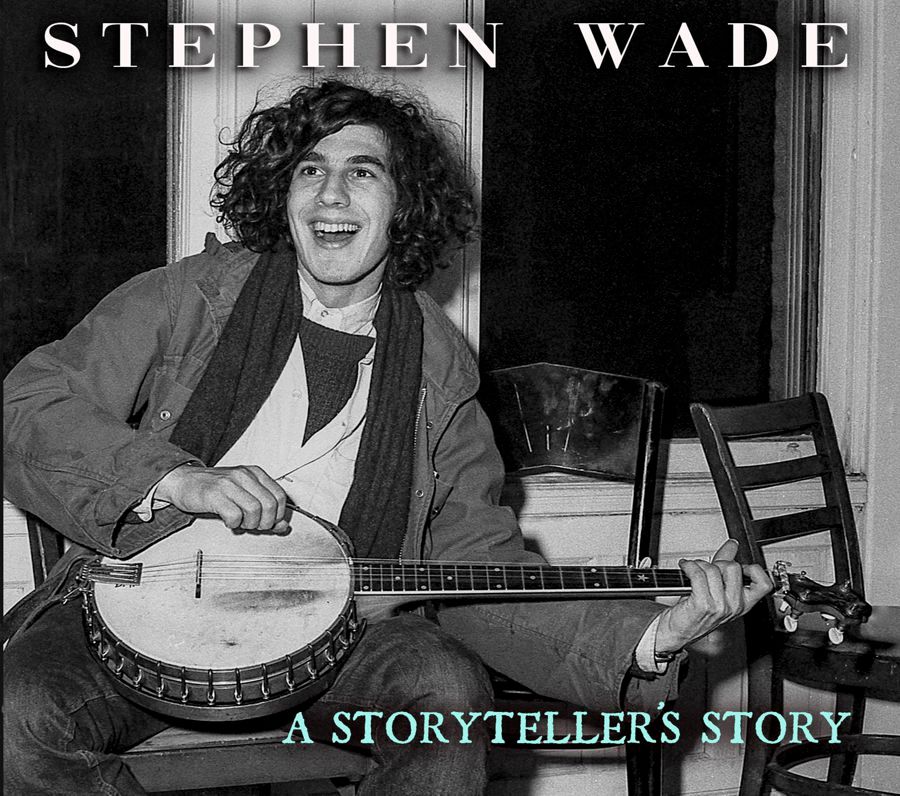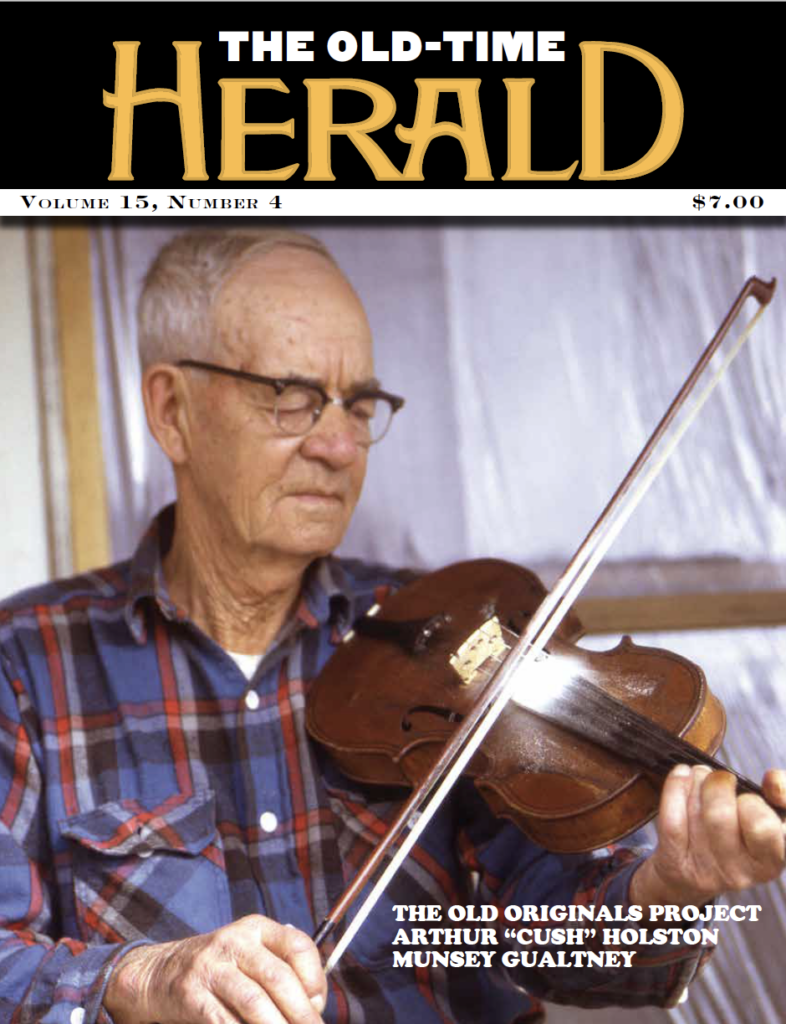“The banjo is a world of sound,” Mr. Wade informs us at the start of this musical autobiography. This 2019 album commemorates the 40th anniversary of the 1979 debut of his one-man show Banjo Dancing. “It was a show largely of spoken word pieces accompanied by the instrument,” Wade says, in a YouTube video promoting this album. “I sometimes sang and sometimes danced.” It was a surprise hit that ran for years. Looking back, Wade shares music that informed Banjo Dancing and other chapters in his musical life, along with discursive reflections and recollections in the 44-page booklet that accompanies the 65-minute, 20-track CD.
The opener, “Banjo Serenade,” sets the pace. Wade offers a Whitmanesque description of the instrument’s attributes spoken over a banjo tune learned from Hobart Smith, “Chatham Hill Serenade.” He next sings and plays “Market Square,” a song learned from Fleming Brown, Wade’s teacher at Chicago’s Old Town School of Folk Music, who was in turn greatly influenced by Hobart Smith. Anyone who has read his book The Beautiful Music All Around Us knows Wade is all about connections, and that applies to the way he’s programmed this album. Skipping through its tracks, there are comic recitations, banjo solos, and songs all held together by the glue of Wade’s associations. Some are from his Banjo Dancing repertoire, while others are versions of field recordings celebrated in his book The Beautiful Music All Around Us,and still others tunes on which musical friends join him. Those friends include Tom Mindte, who plays mandolin on a fine version of “Wolves Howling,” and the late Tom Paley, who fiddles on a 2006 recording of “Leather Britches.” Most delightful is Doc Hopkins weaving anecdotes with musical history in a 1982 interview-performance for the Voice of America, which finds Wade in top form playing several vintage banjo tunes backed by Hopkins’ guitar. Another connection in action: Hopkins was Fleming Brown’s teacher, so Wade’s musical grandfather.
You would expect anyone who built a one-man show around the banjo to be a master of that instrument, and Wade doesn’t disappoint. He’s fluent in several styles, and showcases four in his terrific medley “Peachbottom Creek/John Henry.” We get examples of Wade Ward, Snuffy Jenkins, Earl Scruggs, and, when he plays bottleneck, Dock Walsh and Gus Cannon.
Wade is an unlikely if enthusiastic vaudeville revivalist: he gives his all to the odd alliterative 19th century recitation “The Far-Famed Fairy Tale of Fenella” and kindred quaint works, though the best of his banjo-backed monologues is his own “Chicago,” a loving tribute to his native city recorded at a 1987 benefit for the Old Town School of Folk Music. It’s there we clearly hear why Banjo Dancing was a long-running hit. Anyone who may have experienced it will want this, and there’s plenty besides for the rest of us to enjoy in the way Wade has crafted this expansive career retrospective.


Leave a Reply